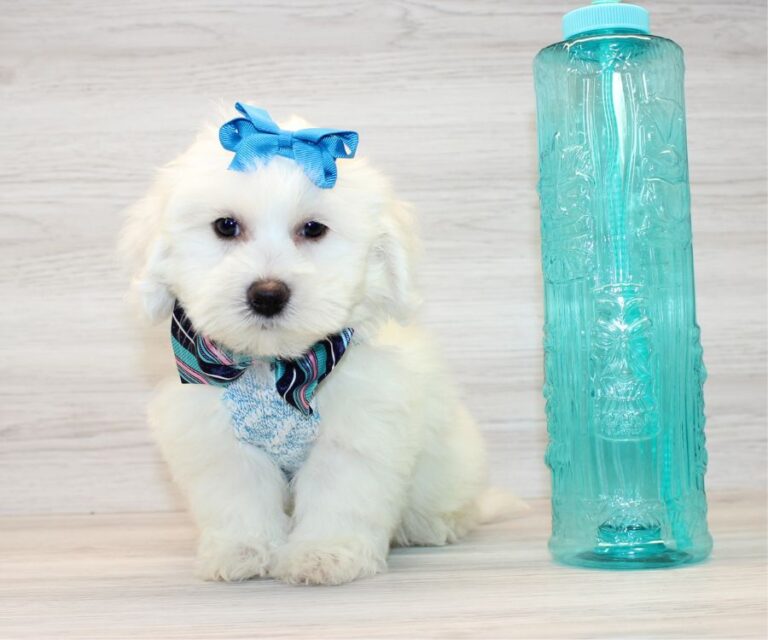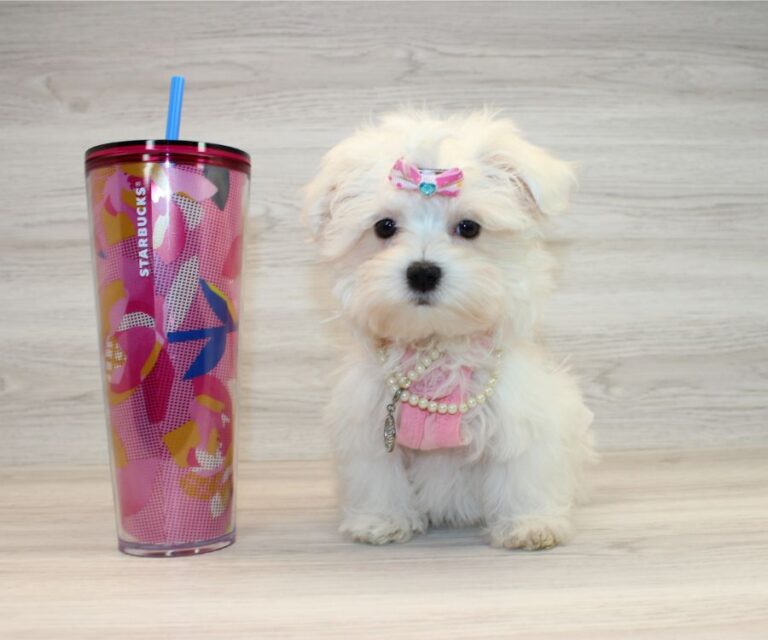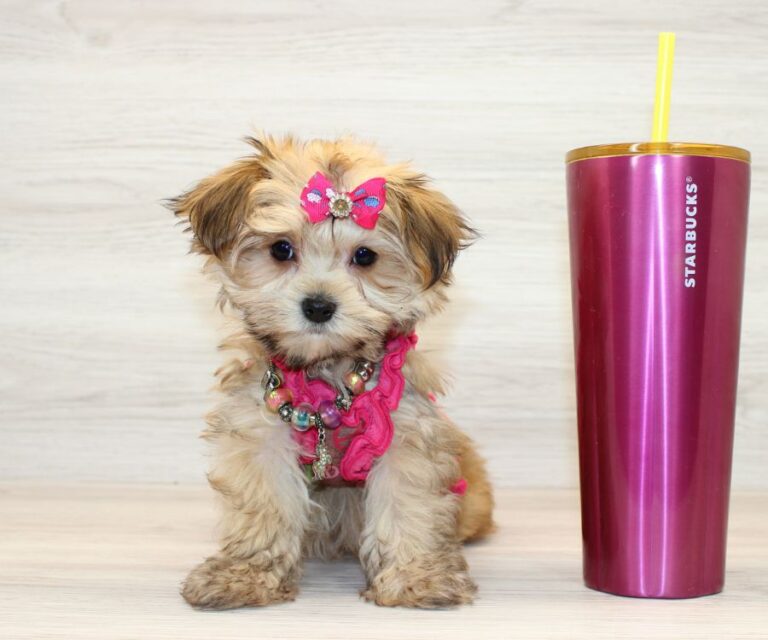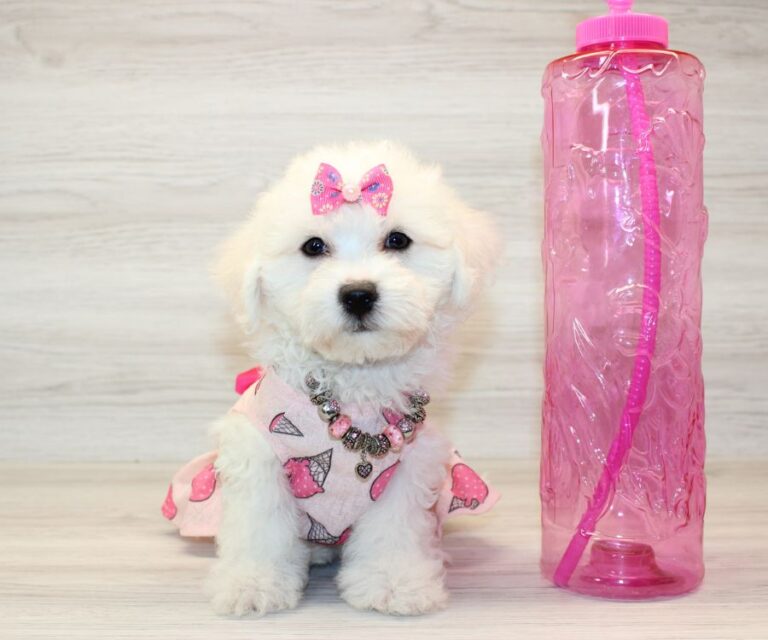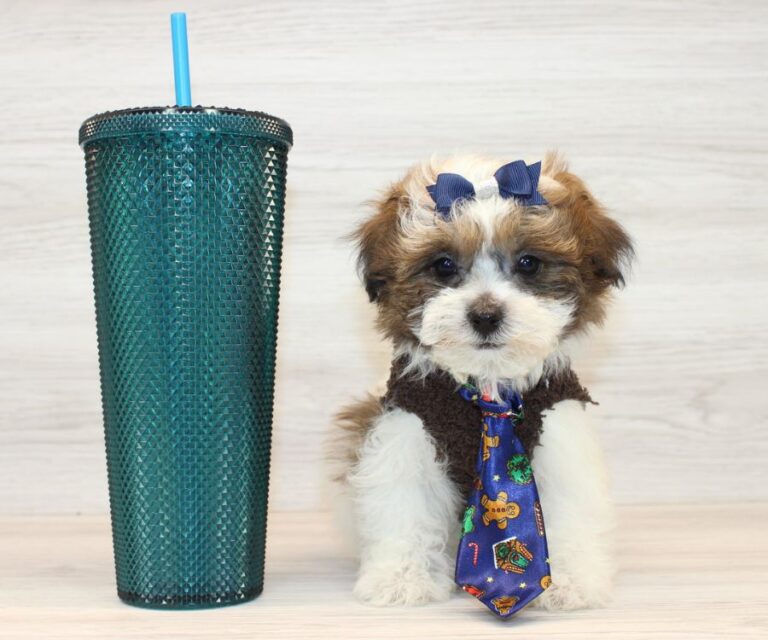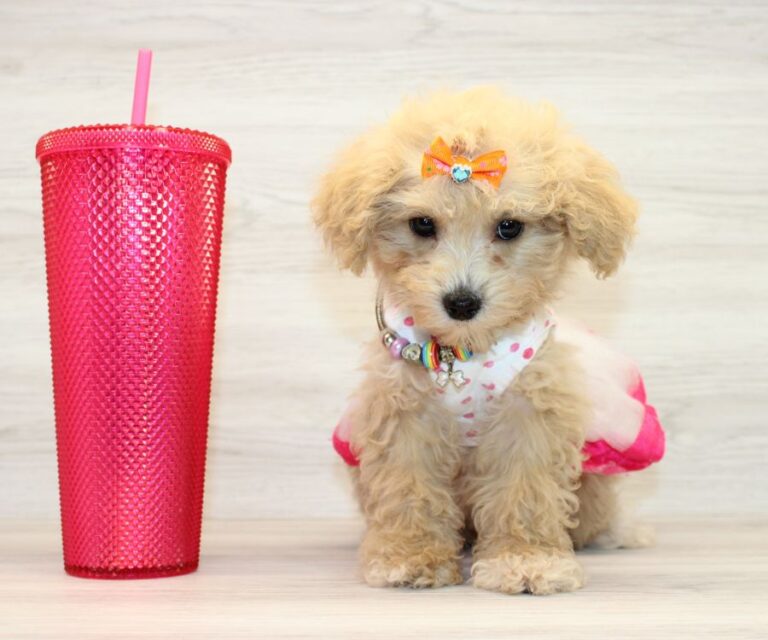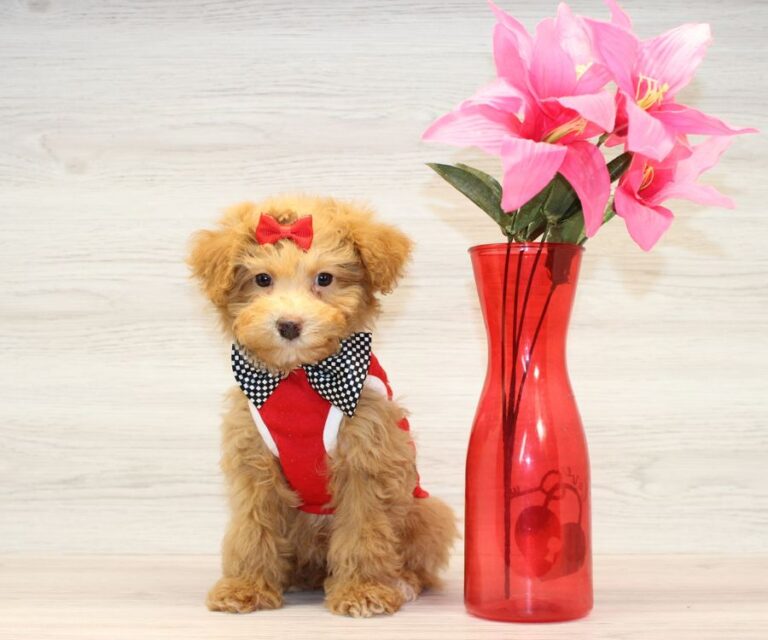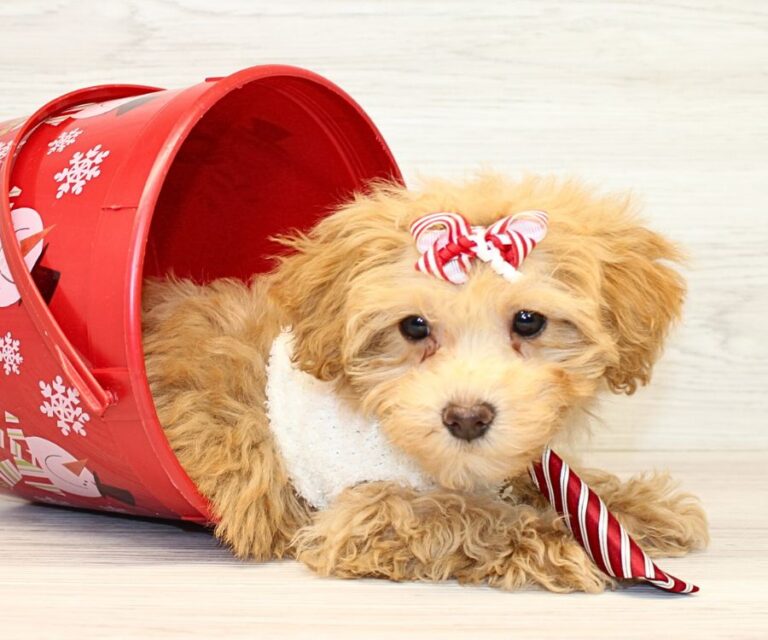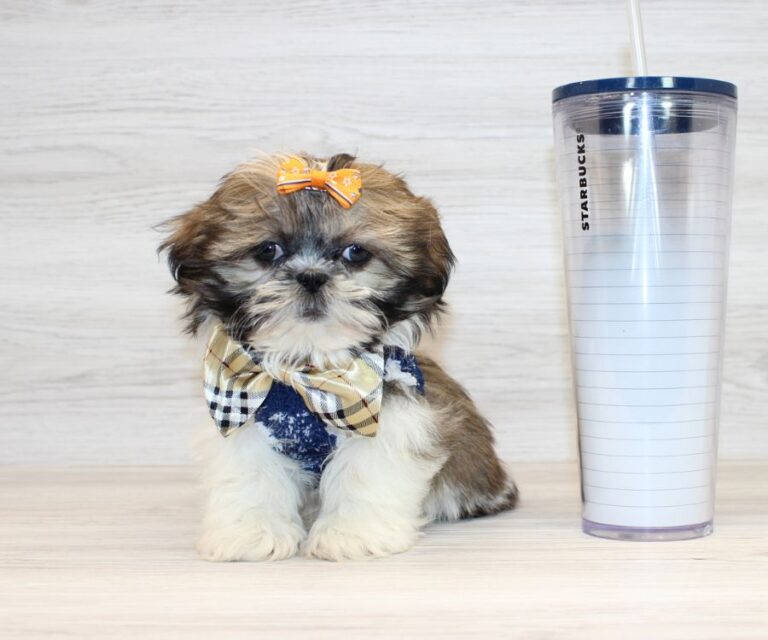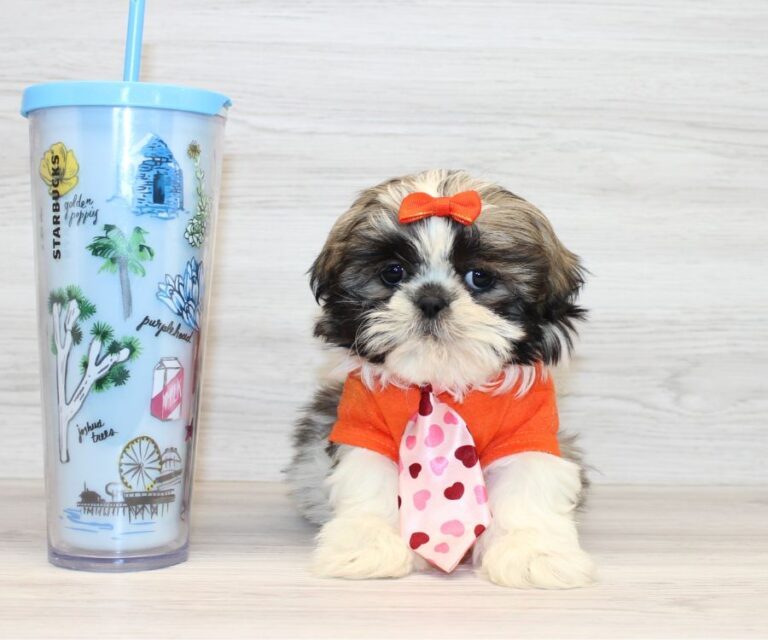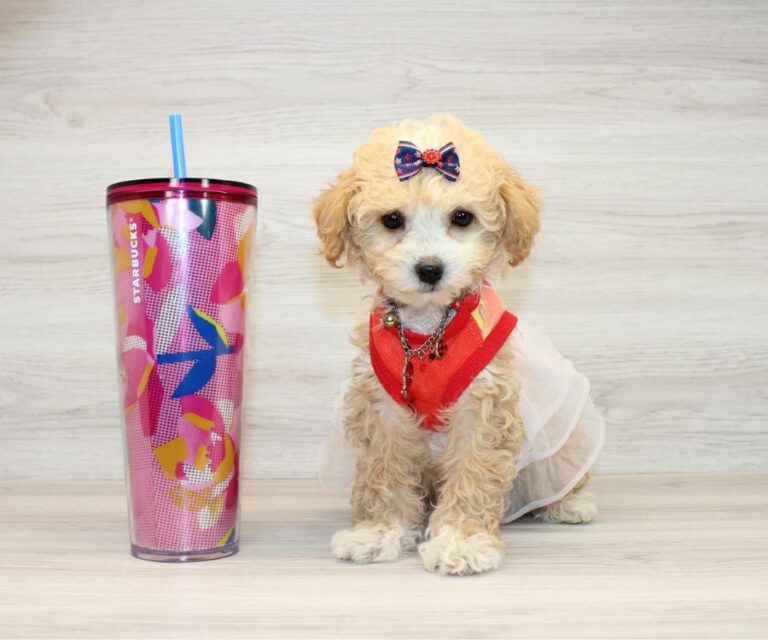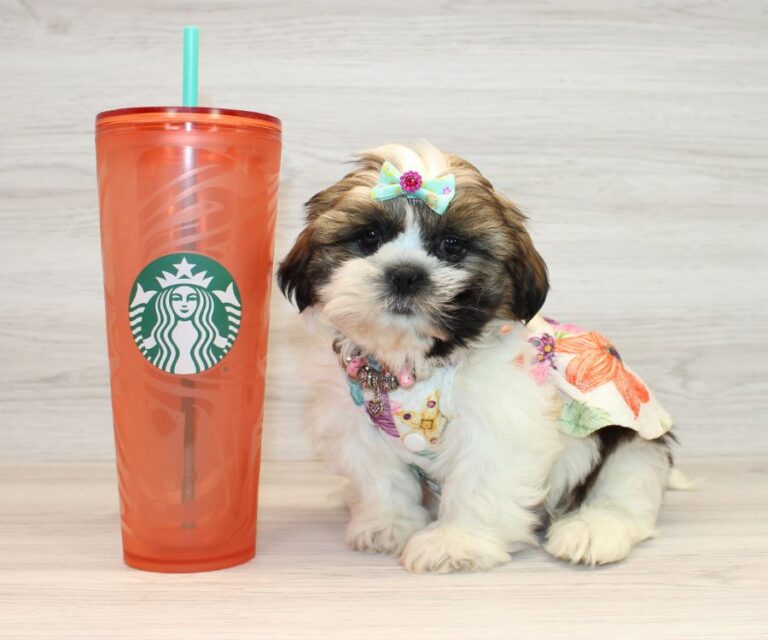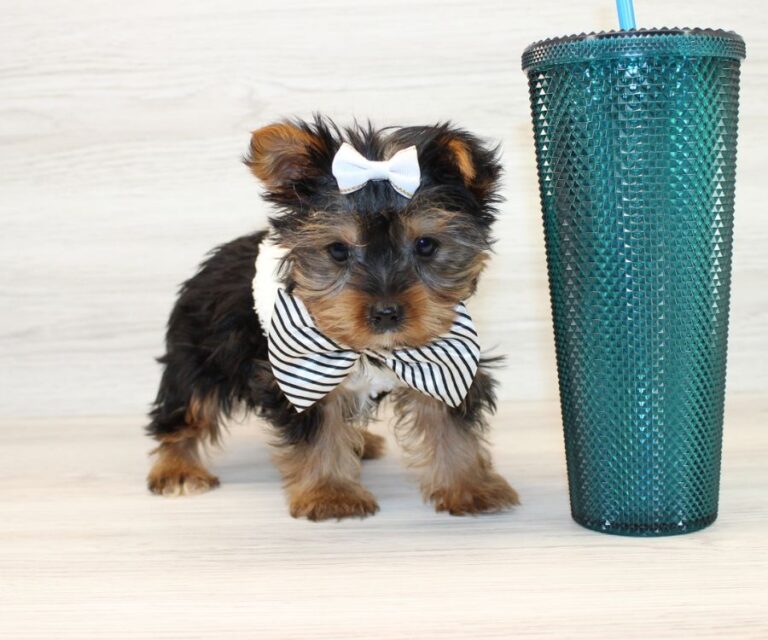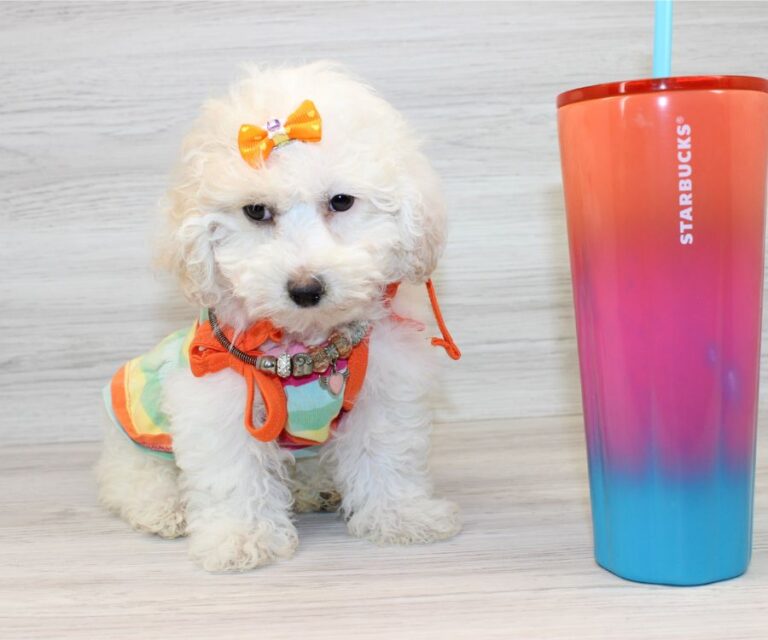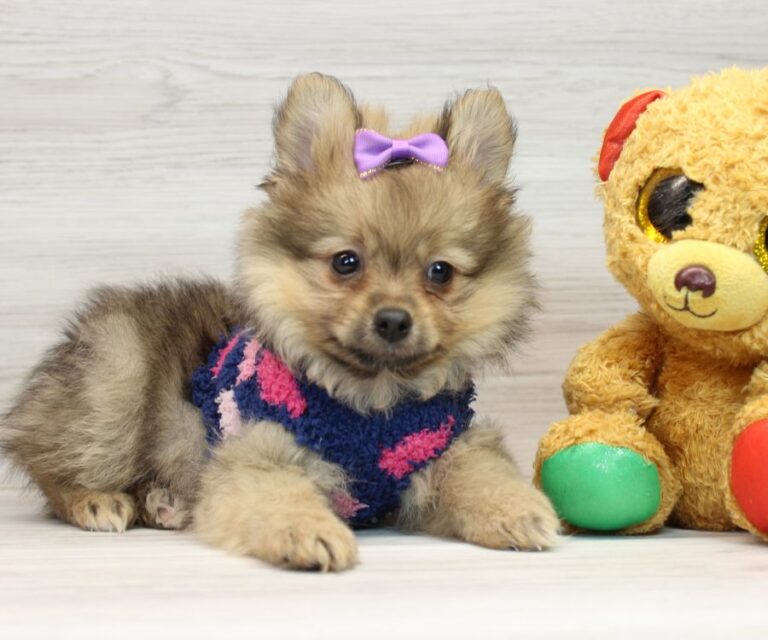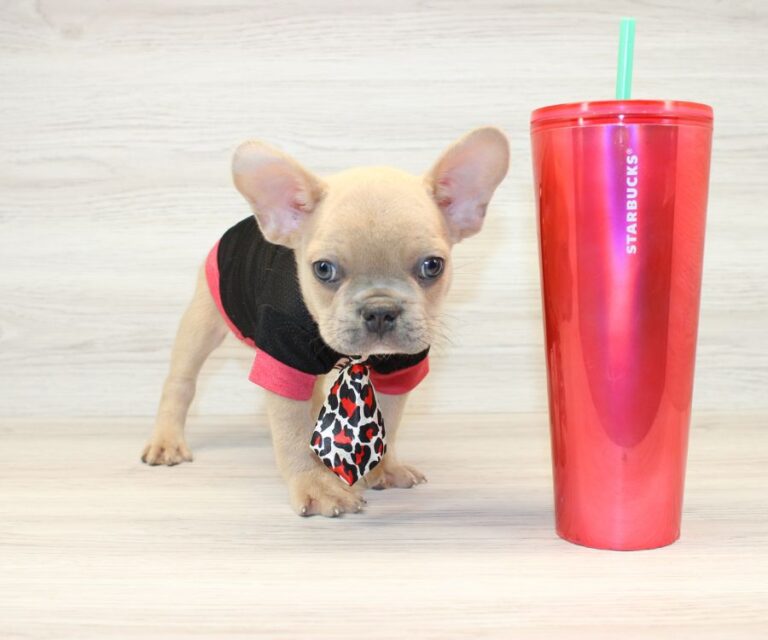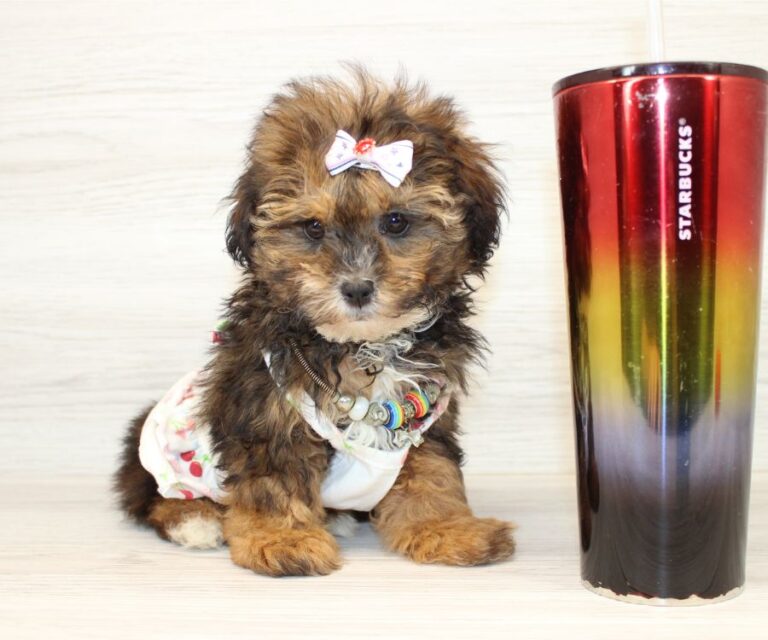At PuppyHeaven.com in Mission Viejo, CA, you’ll find a reputable source for healthy toy and teacup puppies, offering breeds like Yorkshire Terriers, Chihuahuas, and Pomeranians. Each puppy is meticulously bred and undergoes detailed veterinary checks, ensuring they meet high health and temperament standards. The adoption process is transparent with a detailed screening of your readiness and environment, ensuring a perfect fit for both you and your new puppy. Puppies also come with essential health certifications. Visit the store to meet knowledgeable staff and explore the variety of puppies available. Further information will enhance your understanding of what to expect after adoption.
Why Choose Puppyheaven.com
Choosing Puppyheaven.com guarantees you access to a reputable source of healthy, well-socialized toy and teacup puppies, meticulously bred and raised to meet the highest standards. The website’s credibility is bolstered by its transparent approach to the adoption process. Each step is clearly outlined, ensuring you’re well-informed throughout your journey to adopting a new furry family member.
At Puppyheaven.com, the adoption process is designed with both the puppies’ welfare and your readiness in mind. You’ll undergo a detailed screening that assesses your ability to provide a safe, loving home. This includes discussions about your living environment, previous pet ownership, and understanding of the unique needs of toy and teacup breeds. This thorough vetting process guarantees that each puppy is placed in a home where they can thrive and contribute positively to their new community.
Moreover, all puppies from Puppyheaven.com come with essential health certifications and a detailed veterinary health check, recorded for your perusal. This commitment to health and well-being highlights the site’s dedication to serving not only the puppies but also the families they join, fostering a lasting bond built on trust and care.
Our Available Breeds
At Puppyheaven.com, we proudly offer a diverse selection of toy and teacup breeds, each carefully selected for health, temperament, and beauty. You’ll find that each breed has its own unique origins and characteristics, which we’re keen to share with you to help meet your service needs.
For instance, the Yorkshire Terrier, originating from England, is renowned not only for its compact size but also for its strong, affectionate character, making it an excellent companion. Their grooming needs are significant, requiring regular brushing and professional grooming to maintain their fine, silky coat.
Similarly, the Chihuahua, with roots in Mexico, stands out with its bold spirit and minimal grooming demands. This breed needs occasional brushing and regular baths to keep its short coat shiny and healthy.
The Pomeranian, hailing from Germany and Poland, sports a plush double coat that requires more frequent grooming to prevent matting and to uphold its luxurious appearance. Known for their alert and curious nature, Pomeranians serve well in roles requiring vigilance.
Each breed’s grooming needs and origins play a vital role in how they serve and integrate into your lifestyle, ensuring that your choice is well-suited to your specific serving intentions and environment.
Benefits of Toy Puppies
You’ll find that toy puppies offer enhanced companion compatibility, as their smaller size and adaptable nature make them ideal for close living quarters and constant companionship.
Their minimal space requirements mean you don’t need a large home or yard to keep them happy and healthy. Additionally, they demand less physical activity compared to larger breeds, which can be particularly beneficial if you lead a less active lifestyle or have mobility restrictions.
Enhanced Companion Compatibility
Toy puppies often enhance companion compatibility due to their adaptable and affectionate nature. When you’re considering a toy puppy, it’s crucial to understand how their small size and responsive demeanor can lead to a deeper, more rewarding connection with you. Here’s what makes them particularly suitable:
Personality Matching: Toy puppies often mirror the emotions and energy levels of their owners, making them ideal for those who value empathy and responsiveness in their companions.
Behavioral Assessment: Regular assessments can help tailor training methods that align with the puppy’s inherent temperament, promoting a harmonious living environment.
Emotional Connectivity: Their innate sensitivity to human emotions makes them excellent emotional support animals.
Social Adaptability: Toy puppies typically exhibit ease in social settings, making them great companions for various public engagements and family gatherings.
Minimal Space Requirements
While toy puppies excel in emotional and social adaptability, their small size also means they’re perfect for living in limited spaces. In dense urban living environments, where square footage is at a premium, these diminutive companions require minimal space.
You won’t need extensive furniture adjustments to accommodate their needs. A small corner with their bed and a few toys will suffice. This simplicity facilitates easier management of their living quarters and reduces the need for extensive home reconfigurations. Their compact size is especially beneficial in apartments or homes lacking expansive outdoor areas, allowing them to thrive in cozy settings.
Opting for a toy puppy guarantees your living space remains uncluttered while still enjoying the companionship a pet offers.
Lower Physical Demands
In addition to requiring minimal living space, toy puppies also demand less physical activity compared to larger breeds. Their energy levels are naturally adapted to less vigorous exercise routines, making them ideal companions for those with limited time or physical ability to engage in extensive activities.
Here’s a detailed breakdown:
- Shorter Walks Required: Typically, a 15-minute walk twice a day is sufficient for their exercise needs.
- Indoor Play Suffices: Simple indoor games can adequately expend their energy.
- Lower Endurance: They tire more quickly and don’t require long periods of physical activity.
- Adaptable Exercise Routines: Their exercise can often be adjusted to fit indoor environments, which is beneficial during adverse weather conditions.
Teacup Puppies Care Guide
As you explore the care of teacup puppies, it’s important to understand their unique dietary needs, which require precise feeding strategies to guarantee proper growth and health.
Monitoring their health meticulously is vital, as their diminutive size can predispose them to various medical issues.
Additionally, creating a comfortable living environment that safeguards them from physical harm and stress is essential for their wellbeing.
Feeding Teacup Puppies
You must provide your teacup puppy with a balanced diet tailored to their unique nutritional needs to guarantee excellent health and growth. To make sure you’re meeting their specific dietary requirements, focus on the following key aspects:
High-Quality Protein: Opt for food that contains easily digestible proteins to support muscle development and overall vitality.
Nutritional Supplements: Incorporate essential fatty acids, vitamins, and minerals to promote healthy skin, coat, and immune system.
Frequent, Small Meals: Due to their tiny stomachs, it’s better to feed them small portions several times a day rather than large meals.
Hydration Methods: Always provide fresh water and consider wet food to aid in hydration and digestion.
Health Monitoring Essentials
Monitoring your teacup puppy’s health is important, as their small size often requires special attention to detect signs of illness early. To guarantee their well-being, establishing strong veterinary partnerships is key. Regular check-ups with a vet who specializes in small breeds can provide you with expert guidance and timely interventions.
Additionally, genetic screenings play a significant role in preempting potential hereditary conditions. These tests help identify vulnerabilities early, allowing for proactive management rather than reactive treatments.
It’s essential to keep a detailed health diary, noting any changes in behavior or physical condition, no matter how minor they may seem. This practice helps in maintaining an ongoing assessment of your puppy’s health and enhances communication with your veterinarian.
Comfortable Living Environments
Establishing a comfortable living environment is essential for the well-being of teacup puppies, as their small size and specific needs require particular accommodations. Here’s how you can guarantee their space is safe and nurturing:
Temperature Control: Maintain a steady, warm temperature as teacup puppies can easily become cold.
Quiet Spaces: Provide a tranquil area away from high traffic zones to reduce stress from noise sensitivity.
Secure Boundaries: Ensure outdoor play areas are secure and free from outdoor hazards, including predatory wildlife and toxic plants.
Soft Bedding: Invest in soft, comfortable bedding to support their delicate bodies and prevent injuries.
Testimonials From Happy Owners
Many happy owners have shared their positive experiences with toy and teacup puppies, detailing the joy and companionship these small pets bring. The testimonials, rich in owner experiences and satisfaction stories, reveal a consistent theme: the profound emotional impact these tiny companions have on their lives.
One owner recounts the thorough effect their teacup puppy has had, noting significant improvements in their mental health. The puppy’s presence offers comfort and a distraction from the stresses of daily life, promoting an overall sense of well-being. Another testimony highlights the adaptability of toy puppies, emphasizing their ability to integrate seamlessly into various living environments, from apartments to spacious homes.
Further, detailed feedback points to the low maintenance and ease of care for these small breeds, appreciated especially by those with demanding careers or limited space. Owners express gratitude for the thorough guidance provided, which prepares them adequately for the journey of pet parenthood.
The collective voice of these testimonials underscores a dual benefit: the puppies receive a loving home, and the owners experience unconditional love and loyalty. This reciprocal relationship enhances the lives of both parties, fulfilling a mutual need for companionship and care.
Visit Our Mission Viejo Store
If you’re looking to experience firsthand the charm and variety of our toy and teacup puppies, visit our store in Mission Viejo. Our store location is easily accessible and offers a welcoming environment for potential puppy owners who are dedicated to finding their perfect pet companion.
Here are some key details to enhance your visit:
Address and Accessibility: Our store is located at 123 Puppy Lane, Mission Viejo, CA 92691. Ample parking is available, and the facility is wheelchair accessible, ensuring convenience for all our visitors.
Opening Hours: We’re open from 9:00 AM to 7:00 PM Monday through Saturday, and Sundays from 10:00 AM to 5:00 PM. These hours are designed to accommodate a variety of schedules, allowing you to visit at your convenience.
In-Store Experience: Upon entering, you’ll be greeted by our knowledgeable staff who can guide you through the selection of puppies, discuss care needs, and answer any questions about breed characteristics and temperament.
Appointment Booking: While walk-ins are welcome, we recommend booking an appointment. This guarantees personalized service and adequate time to meet multiple puppies if desired. Appointments can be made by phone or through our website.
We look forward to serving you and helping you find your new furry family member.
Puppy Health and Vaccinations
You should always prioritize the health and vaccination schedule of your new puppy to guarantee they lead a healthy, vibrant life. Puppy immunization schedules are critical in preventing various common puppy illnesses that can affect their development and overall well-being.
Initially, your puppy will need a series of vaccinations starting at around six to eight weeks of age. These will protect against parvovirus, distemper, and hepatitis. It’s important that you adhere to the recommended timeline for these shots, as they play a significant role in building your puppy’s immune defenses. Subsequent doses are usually administered in three-to-four-week intervals until the puppy reaches 16 weeks of age.
In addition to these core vaccines, your veterinarian might recommend others based on your puppy’s risk factors and lifestyle, such as vaccinations for Bordetella—commonly associated with kennel cough—and leptospirosis. Always discuss these options with your vet to tailor a plan that suits your puppy’s specific needs.
Be vigilant for signs of common puppy illnesses, such as diarrhea, vomiting, and lethargy. Early detection and prompt treatment can prevent more serious complications. Regular check-ups, a balanced diet, and proper hygiene are also fundamental in maintaining your puppy’s health. Remember, their well-being is in your hands.
Training Tips for Small Dogs
After ensuring your puppy’s health and vaccinations are up to date, it’s important to focus on training techniques suitable for small dogs. Training your tiny companion involves patience and understanding their unique needs.
Here’s a structured approach to guide you:
Start Early with Socialization: Introduce your puppy to various environments, people, and other pets gradually. Socialization strategies are vital for small breeds to help them develop confidence and reduce anxiety. Begin this process by visiting quiet, controlled settings and progressively introduce more stimuli.
Establish a Routine: Small dogs thrive on predictability. Set a consistent schedule for feeding, potty breaks, and training sessions. This regularity helps in mitigating behavioral challenges like excessive barking or separation anxiety.
Positive Reinforcement: Always use positive reinforcement techniques. Reward desired behaviors with treats, praise, or playtime to reinforce these actions. Avoid harsh corrections, as they can lead to fear and mistrust.
Tailor Training Sessions: Keep training sessions short and engaging. Small dogs often have shorter attention spans, so limit training to a few minutes at a time but increase the frequency of sessions throughout the day. This helps maintain their interest and prevents overstimulation.
How to Adopt Your Puppy
Before adopting your puppy, thoroughly research and select a reputable breeder or adoption agency to guarantee a healthy and well-socialized pet. You’ll need to verify that the chosen agency practices ethical breeding and adoption processes. It’s important to inquire about the health screening of the puppies and if they’re vaccinated and dewormed, as this prevents future health complications.
When considering adoption, you must also assess the adoption costs. These costs cover vaccinations, spaying or neutering, and sometimes even microchipping and initial veterinary wellness checks. By understanding these expenses, you can prepare financially for the responsibilities of puppy ownership.
If you or a family member has puppy allergies, discuss hypoallergenic breeds with the agency. Many small breeds like certain types of poodles or terriers are bred to produce fewer allergens. However, visiting the puppy in its current home environment to see how you react is advisable before making a final decision.
Lastly, always ask for detailed adoption paperwork that includes the puppy’s medical history, breed information, and any behavioral assessments. This documentation is important for ensuring that you’re fully prepared to meet the specific needs of your new furry family member.
Conclusion
You’ve explored the joys of adopting from PuppyHeaven.com. Our selection spans various breeds, tailored to suit your lifestyle. Opt for the charm of toy or teacup puppies, benefiting from our thorough care guides and expert training tips. Health and vaccinations are carefully managed to make sure your new companion thrives.
Visit our Mission Viejo store or contact us to start your adoption process. Embrace the excitement of welcoming a tiny, loving addition to your family today.

